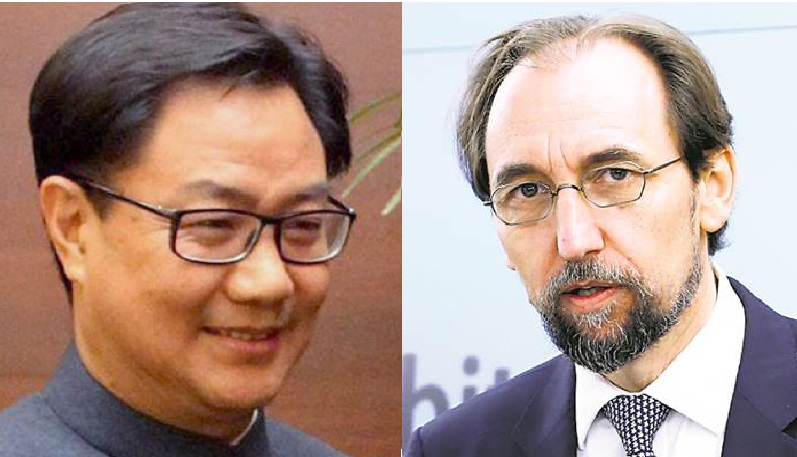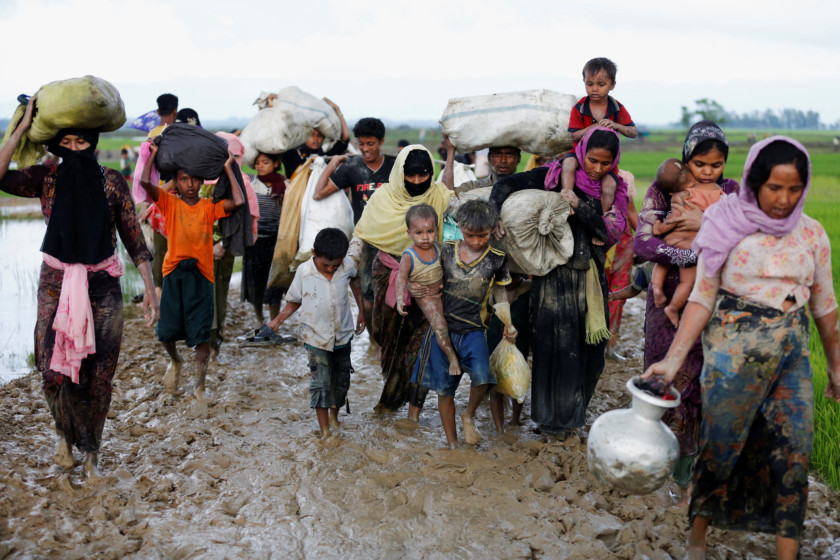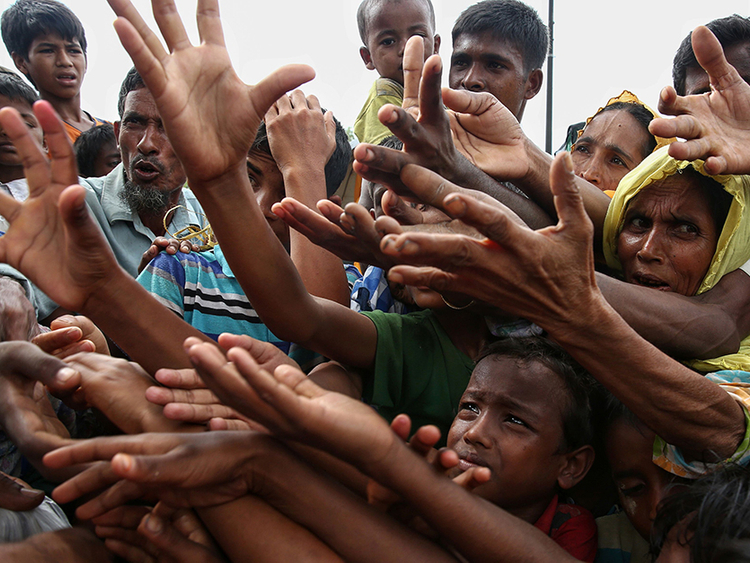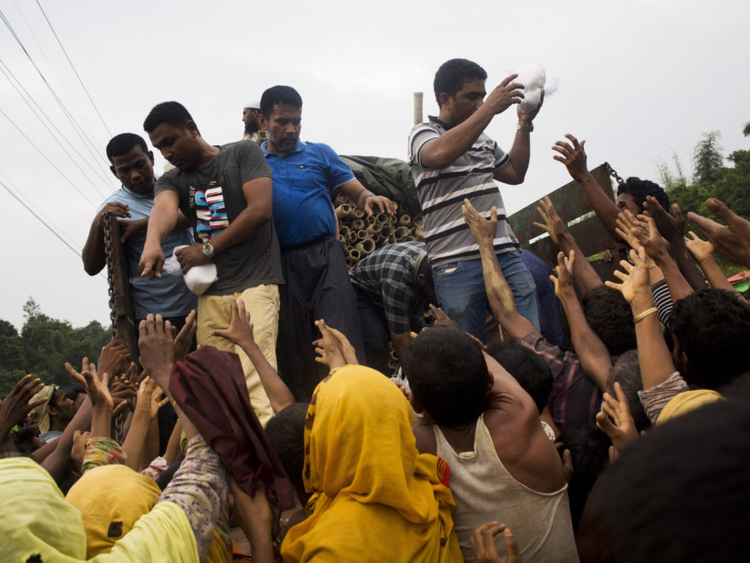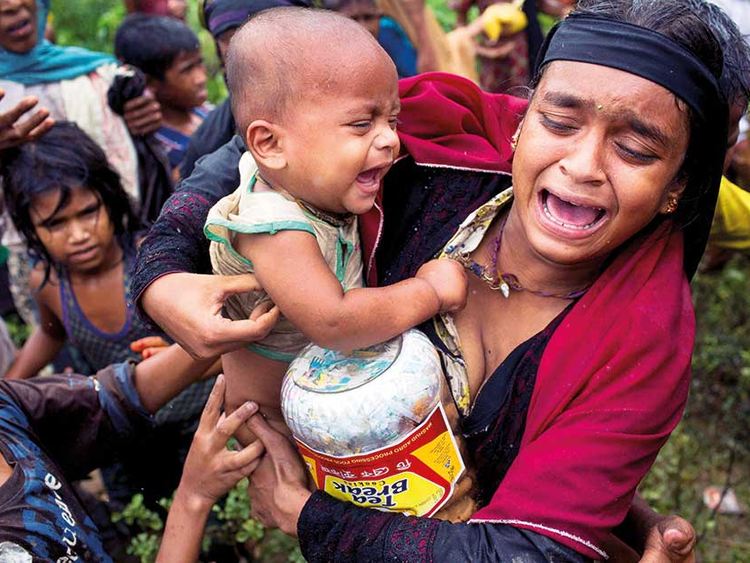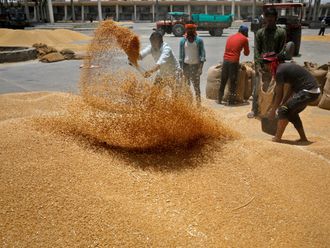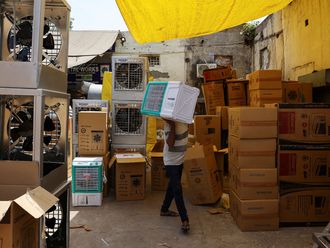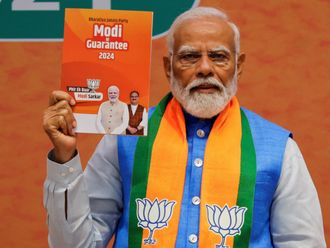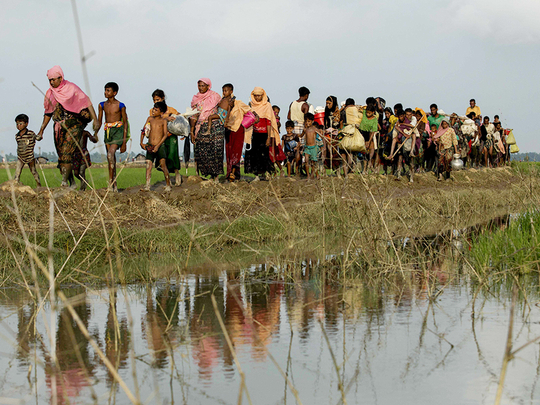
The UN High Commissioner for Human Rights has assailed the Indian government over its threat to deport 40,000 Rohingya.
During the 36th session of the Human Rights Council, Zeid Ra'ad Al Hussein, UN High Commissioner for Human Rights, also cited "cow vigilantism" and the murder of outspoken journalist Gauri Lankesh as part of the "darker and more dangerous" updates on human rights issues in 40 countries.
The UN body earlier assailed India for rising communalism, caste violence and attacks on Africans.
Al Hussain on Monday said in Geneva: "I deplore current measures in India to deport Rohingyas at a time of such violence against them in their country.
#Myanmar #HRC36: UN #humanrights chief says "situation seems a textbook example of ethnic cleansing" pic.twitter.com/jiOiY3r7HM
— UN Human Rights Asia (@OHCHRAsia) September 11, 2017
Some 40,000 Rohingya have settled in India, and 16,000 of them have received refugee documentation.
Collective expulsion
Zeid criticised the statement of Kiren Rijiju, Union Minister of State for Home Affairs, that India can dispense with international law, together with basic human compassion, on the matter because it is not a signatory to the Refugee Convention.
#Myanmar: UN #humanrights chief says military op in #Rakhine is disproportionate & without regard for basic principles of intl law #HRC36 pic.twitter.com/KnNgQynHKR
— UN Human Rights Asia (@OHCHRAsia) September 11, 2017
"The Minister of State for Home Affairs has reportedly said that because India is not a signatory to the Refugee Convention, the country can dispense with international law on the matter," said Al Hussain.
"However, by virtue of customary law, its ratification of the International Covenant on Civil and Political Rights, the obligations of due process and the universal principle of non-refoulement, India cannot carry out collective expulsions, or return people to a place where they risk torture or other serious violations.
Intolerance
Al Hussein added: "I am also dismayed by a broader rise of intolerance towards religious and other minorities in India. The current wave of violent, and often lethal, mob attacks against people under the pretext of protecting the lives of cows is alarming.
#Zeid dismayed at rising intolerance for minorities in India https://t.co/c5BBl9dUD5 pic.twitter.com/bZu12otB4j
— UN Human Rights (@UNHumanRights) September 11, 2017
"People who speak out for fundamental human rights are also threatened. Gauri Lankesh, a journalist who tirelessly addressed the corrosive effect of sectarianism and hatred, was assassinated last week.
"I have been heartened by the subsequent marches calling for protection of the right to freedom of expression, and by demonstrations in 12 cities to protest the lynchings.
"Human rights defenders who work for the rights of India's most vulnerable groups – including those threatened with displacement by infrastructure projects such as the Sardar Sarovar Dam in the Narmada river valley – should be considered allies in building on India's achievements to create a stronger and more inclusive society.
"Instead, many are subject to harassment and even criminal proceedings, or denied protection by the State.|
Al Hussain said he encourages the Bangladeshi government "to maintain open borders for the Rohingya refugees.
"I urge the international community's support in helping the authorities receive and better assist the refugee population."
Comment
Indian media reported that while New Delhi did not make any official comment, India believes it is taking a balanced approach to the Rohingya issue in Myanmar, which is much more than a humanitarian crisis.
India has promised large investments in development of the troubled Rakhine state, which is home to the Rohingya.


